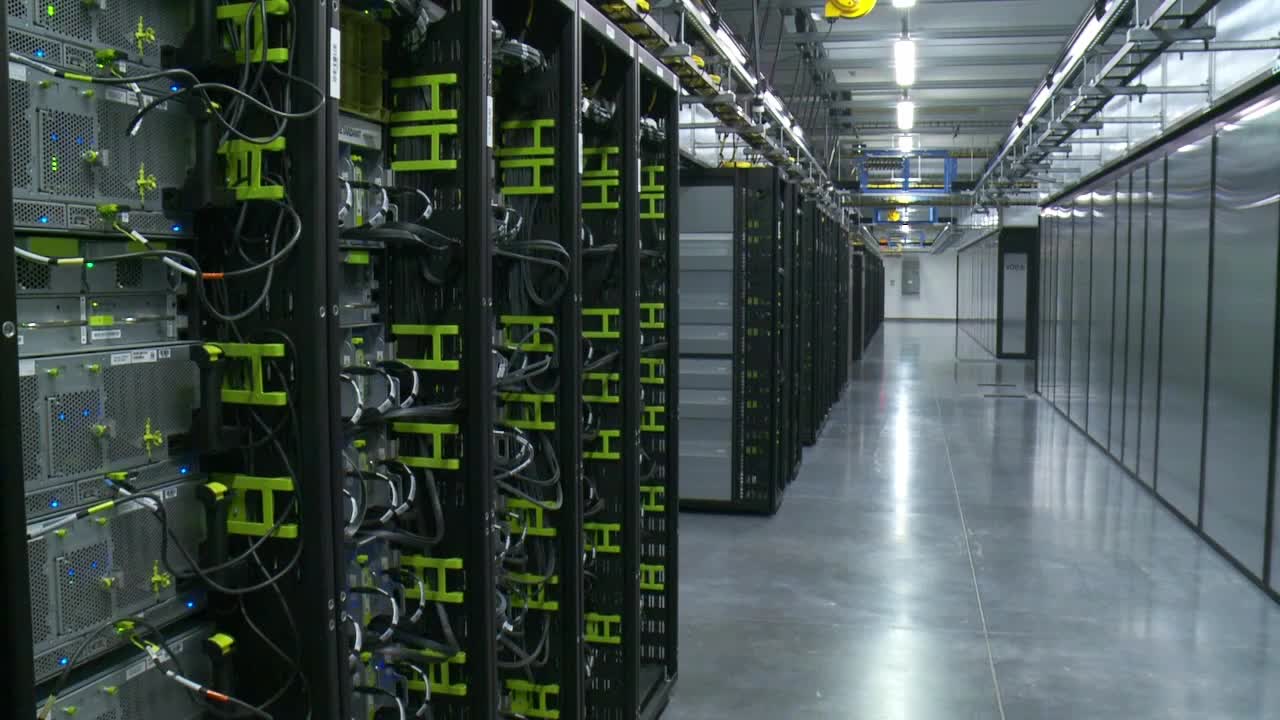SALT LAKE CITY — The Utah State Legislature is fast-tracking a bill that would force data centers to report how much water they use.
On Thursday, the Legislative Water Development Commission unanimously approved a bill sponsored by Rep. Jill Koford, R-Ogden, that would require the dozens of data centers across the state to report how much water they divert, use and discharge.
"It’s not something they voluntarily report," Rep. Koford told the commission.
Utah State Engineer Teresa Wilhelmsen confirmed to FOX 13 News they do not have good information on data centers and their water use.
"It seems like across the country, there’s a lot of questions about how much water data centers use. There’s a few studies out there, some estimates out there, but not a lot of specifics," she said.
There are some clues. For example, an analysis by the Aspen Institute found that in one month, the National Security Agency's massive data center in Bluffdale consumed more than 23.5 million gallons. By contrast, Novva's data center in West Jordan has disclosed it uses roughly 85,000 gallons in a month.
Here are the top 10 biggest issues facing Utah right now:
With more data centers planned across the second-driest state in the nation (including a massive AI data center near Delta), Rep. Koford said it is time Utah officials knew exactly how much water they consume.
"What we want to know is what are you diverting? What are you consuming? What are you discharging? So that we can get a handle on it and we can plan for the future," she told FOX 13 News.
Under the proposed legislation, data centers could be fined $10,000 a day for failure to report their water use. With a unanimous vote from the Legislative Water Development Commission, the bill will move quickly in the 2026 Utah State Legislature without the need for a committee hearing and instead go directly to a floor vote in the House of Representatives.
Rep. Koford's bill won support from environmentalists. Steve Erickson of the Great Basin Water Network praised the legislation in a public comment period.
"I do think it’s important that we have a clear idea the amount of water we’re looking at with these data centers as they begin to proliferate around the state," he said.
Rep. Carl Albrecht, R-Richfield, said he supported the bill but also pointed out that newer data centers were using more water-saving technologies.
"I know a lot of these data centers are doing different technology — air cooling, gas cooling and so on and so forth, but we just need to know how much water they’re using," he said.
Rep. Koford said she is looking to get cooperation from data centers and tech companies as the bill advances in the upcoming legislative session. But she did acknowledge the legislature could seek to regulate their water use.
"I think that’s a reasonable question to ask, right? This is step one in a process as we’re looking at the overall scheme of where we’re using water in the state, how we’re using water in the state and how we’re protecting this incredibly valuable resource," she said. "Look, I'm running legislation to protect the Great Salt Lake and that’s always at the forefront of my mind."
The Legislative Water Development Commission also advanced bills that seek to implement landscaping requirements for public buildings, including limiting turf and requiring canopy shade and exploring what is happening with storm water and ensuring more of it goes to the Great Salt Lake.
This article is published through the Great Salt Lake Collaborative, a solutions journalism initiative that partners news, education and media organizations to help inform people about the plight of the Great Salt Lake—and what can be done to make a difference before it is too late. Read all of our stories at greatsaltlakenews.org.




